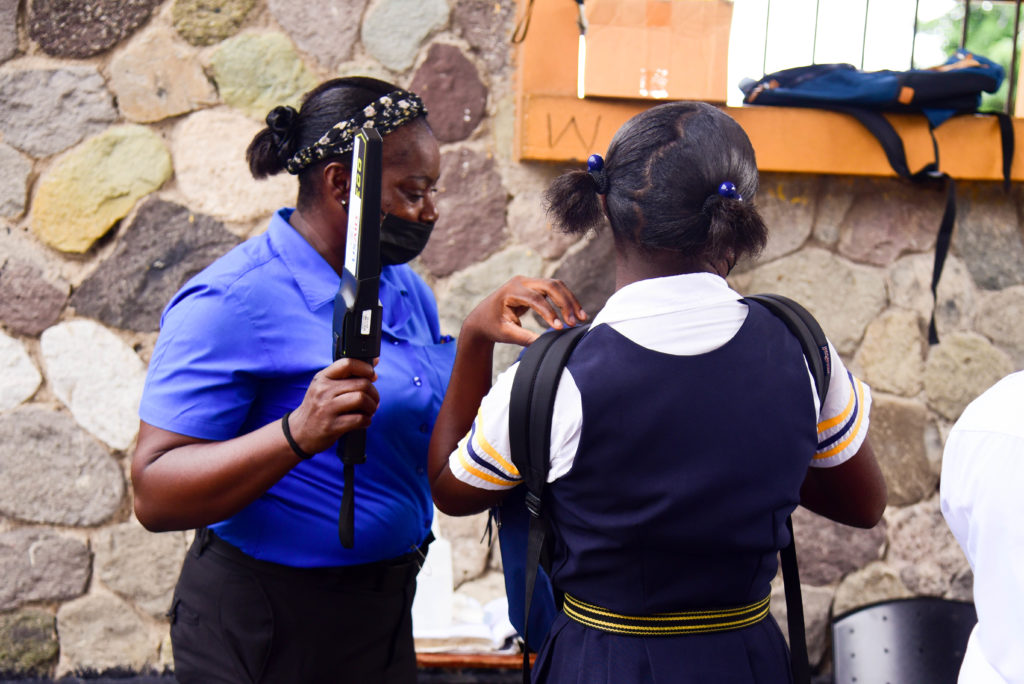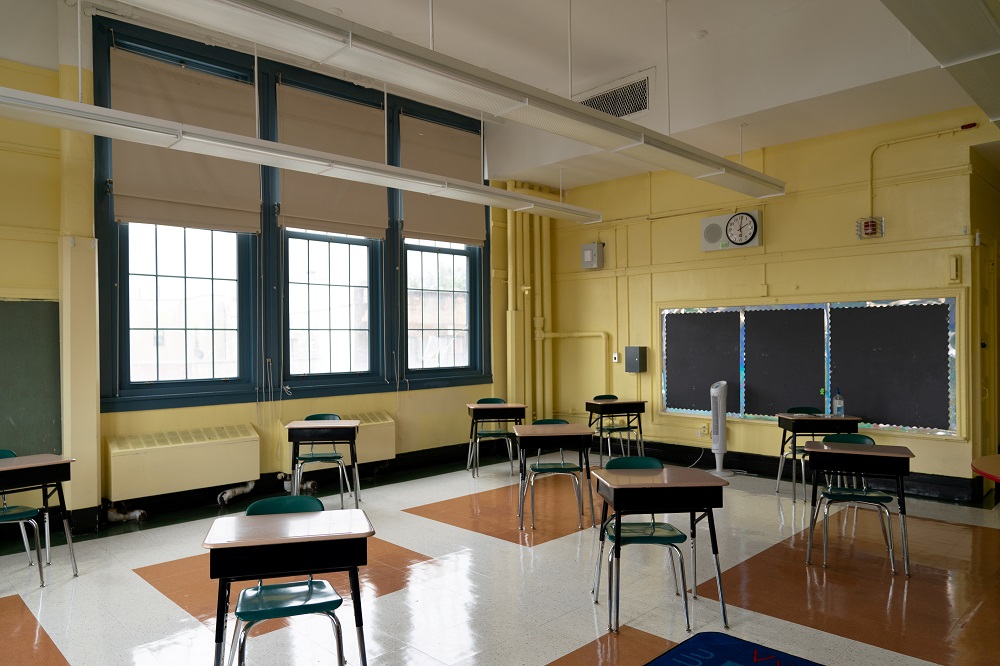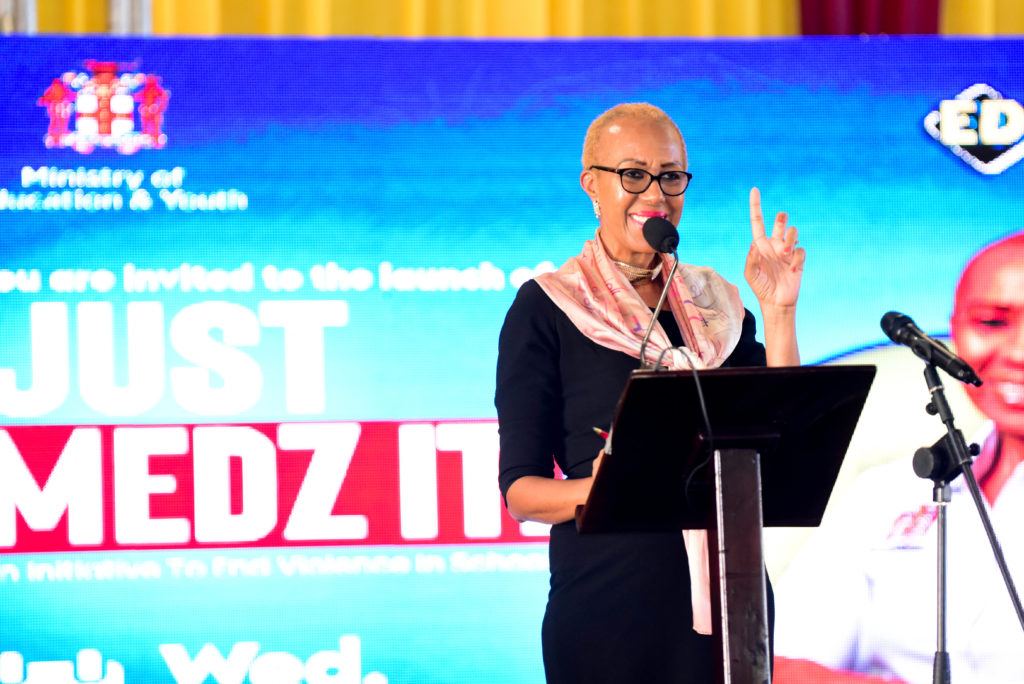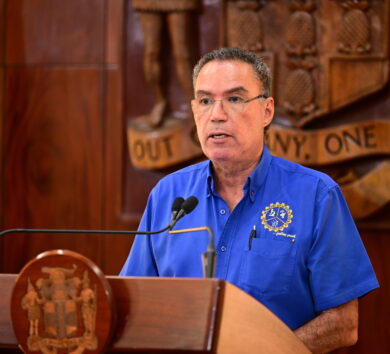

Damion Crawford, opposition spokesperson on education, has labelled the Government’s proposals to reduce violence in schools as inefficient, listing 20 strategies he believes will be more efficient in resolving the issue.
Crawford was speaking during a press conference today (November 14), where he discussed the state of the education sector, highlighted the increased acts of violence in schools and offered solutions that the Government can implement to cauterise this issue.
He noted that, within the first semester of school, there have already been two students killed due to violence in schools and that the Opposition is concerned for the safety of the island’s children.
“The Government does not seem to have a grasp on this issue and has only offered untested hypotheses, unfulfilled commitments, random slogans, ill-conceived and low-impact interventions and broad undirected statements,” said Crawford.

He added that the Government’s suggestion that students should be searched before entering schools is an example of an inefficient proposal.
“Simple mathematics of 1,000 students in school and an average of 30 seconds to do an effective search, you will recognise that you will need 500 minutes or approximately eight hours for all students to be searched. That is the entire period that school is supposed to last,” he said.
For Crawford, “these proposals suggest that there is a general misunderstanding of the circumstances surrounding the upsurge in criminal activity that violence can have. There is also a lack of creativity and energy within the ministry of education that we have highlighted before”.
Recommendations made to schools and the government
Through research and conversations with principals and teachers, Crawford said the opposition discovered that substance abuse, violence within the society and communities, child abuse and other issues are risk factors contributing to the violence in schools.
With this in mind, he is asking that the ministry of education, principals, board chairpersons and the parent-teacher association consider implementing the recommendations made.
“We believe if these steps are taken with urgency, we will be able to drastically reduce the occurrence of violence in schools. While we work together to reengineer a society where our children and citizens are not so disposed to violence,” said Crawford.
He added that none of these suggestions are expensive and most of the recommendations can be implemented within a short space of time.

The following recommendations were made:
1. Commission a department of socialisation in all public, primary and secondary schools that will be headed by guidance counsellors.
2. This department should ensure that at all times interactions outside of class, in particular lunchtimes and after-school sessions, are monitored by a ratio of no less than one adult to 200 students.
3. Rethink the role and remuneration of form teachers. This should be a trained position for teachers willing to commit to the positive resocialisation/socialisation of our children in school. This position should receive an additional remuneration of no less than $20,000 per month with the additional perk of being appointed to the position of senior teacher for playing this vital role.
4. Design and implement form-teacher training in the areas of behaviour modification, depression spotting, the identification of drug addiction, bullying, gang formulation, gang participation and adequate intervention in gang participation.
5. Increase the cohort of Deans of Discipline across the entire school network. To achieve a ratio of one to 600 or at worst a Dean of Discipline to lower school (grades 1 to 3 for primary and grades 7 to 9 for secondary schools).
6. Increase the cohort of Guidance Counsellors across the entire school network. To achieve the reduction of the student-to-counsellor ratio from 400 to one.
7. Consider staggered lunch and dismissal times to increase the adult-to-student ratios during lunch and dismissal which are the highest risk periods. This could include corridor lunch rooms with folding furniture to have student purchase lunch and then return to their form corridors to consume said lunch.
8. Implement a new approach to detention. This approach would include programmes to promote peace and reduce conflict to be served for the duration of the term.
9. Design a special summer program for all students identified as disposed to violent behaviour. This programme exposes participants to uniform groups, violence reduction and conflict resolution training.
10. Link path programme retention to parent participation in PTA and related activities.

11. Install closed-circuit cameras for all schools.
12. Employ a zero-tolerance approach to violence participation and promotion. (This includes cheering, filming, and failure to report)
13. A reward program for good behaviour.
14. Reimagine reform boarding schools that allow for the separation of students that need additional intervention from experts.
15. Increase the cohort of child psychiatrists employed in each region. Three child psychiatrists per region and offer scholarships to serve as an inducement to specialise in the field of child psychology.
16. Establish a department of volunteerism within the Ministry of Education tasked with the job of encouraging, vetting, coordinating and deploying well-thinking Jamaicans willing to participate in mentorship, extra lessons, telephone tutorial, clubs and societies supervision, etc.
17. Organise weekend peace education and behaviour modification exercises to include parents and guardians including Mommy and Me and Daddy and Me classes so as to reduce contradictions between school socialisation and home socialisation.
18. Implement a big brother/big sister programme that pairs younger students at risk of bullying with 5th and 6th form big brothers/sisters.
19.Encourage school spirit through devotions, school songs, school colour days
and online school support competitions.
20.Update and reintroduce the values and attitudes programme.
– Send feedback to [email protected]







Comments